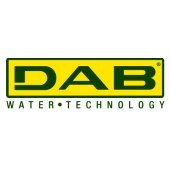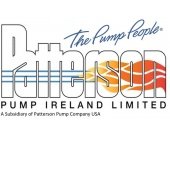THE YEAR THE EARTH STOOD STILL
 Alan Hunt, Product Manager at ABB Measurement & Analytics in the UK, looks at the role that instrumentation and automation played in keeping the lights on, the taps running, and our supermarket shelves stocked during the pandemic that took hold in 2020.
Alan Hunt, Product Manager at ABB Measurement & Analytics in the UK, looks at the role that instrumentation and automation played in keeping the lights on, the taps running, and our supermarket shelves stocked during the pandemic that took hold in 2020.
As COVID 19 spread across the globe, the UK government closed schools, shops and hospitality venues to try to slow the spread of the virus. It seemed that overnight the highways went quiet, aeroplanes did not fly, and the birds became noisy. The effect was disorientating. However, generally speaking, life and the structures that kept us going through that period did not stop. There may have been the odd panic induced shelf stripping of pasta and toilet rolls from the shops; but, the automation of processes at water utilities, energy companies and food manufacturers allowed the services on which we all rely to remain unaffected. Indeed, there was such little disruption that there was no ripple or murmur amongst customers or news outlets of what a feat this was. There may have been an absence of toilet roll, which was well documented, but the taps kept running, the electricity continued to flow, and the internet kept returning our search results on the virus.
Many stepped out of their homes once a week to ‘clap for carers’, yet there were many key worker heroes in a variety of roles through that period that ensured the continued functioning of society by maintaining the supply of water and energy to our homes and food on the shelves of the supermarket.
How did those superheroes continue to deliver those basic things that were keeping us sustained?
Automation to the rescue
There is a continued debate for and against automation, with some believing that automated systems take away from the roles traditionally carried out by human workers. However, well applied automation does not do away with jobs for humans but allows both the human to do tasks where they can genuinely add value and the automation to do tasks when people can’t be there to do them.
The past few years have seen the water industry investing in high levels of automation. In the UK, the water services regulation authority, OFWAT, sets targets that the water industry must meet to ensure water is provided to end-users efficiently and at an affordable price. Automated systems, supplied with a wealth of data from measurement instruments and analysers, are widely used for a variety of purposes, including monitoring network performance, maximising potable water quality through accurate dosing and ensuring the safety of water before it reaches our taps by detecting and removing potential contaminants. The geography of reservoirs miles from the point of use has accelerated automation in the water industry. With a network of reservoirs and water towers distributed over several hundred miles, automation reduces the requirement to transport operatives to remote locations. It would be inefficient to send an individual to monitor the water quality or water withdrawal when instruments such as level transmitters, flowmeters and continuous water analysers can be used to ensure that levels are topped up and quality is within specified boundaries.
Quality of water is maintained
The first lockdown in the UK almost perfectly coincided with the sunniest and driest April on record and the hottest for 361 years. This was a perfect storm for the water industry, placing an enormous increase in demand for water just as restrictions were placed on the workforce.
The water industry has relied upon automation to maintain consistent and high-quality supplies flowing long before 2020 and therefore was less reliant on labour to continue operations as demand changed and workforce movement was restricted.
No level of automation has yet negated the requirement for all labour. The instrumentation required must be maintained. However, the investments made by the water industry in automation doubly paid for themselves as they gave the water network resilience in a time of extreme need.
Keeping the power on
The balancing act of supplying the right amount of power to the grid when it is needed is tested during more normal times. As a nation of tea drinkers, the UK has a unique pattern of power requirements that the National Grid managers are well used to dealing with. The energy demand of several million kettles being switched on for a brew simultaneously requires the grid to be on standby for half time of big football matches, or the closing sequence on Strictly Come Dancing. Negotiating the spike in demand and avoiding outages requires hydroelectric plants roaring into action at just the right time.
If ten million kettles being turned on simultaneously causes a bump in the road for power supply, the complete change in power consumption patterns caused by a national lockdown is unimaginable. Without power, our water supply is in peril. Artificial Intelligence is playing a greater role in coordinating the supply and demand of electrical power, and smart cities capable of dimming lights rather than inducing a power outage are transforming the power supply network.
Those that carry out maintenance for the utilities deserve a nod of appreciation. For the water and energy utilities companies to have faultlessly maintained service such that the general population witnessed no noticeable alterations in supply was not by accident, it was by design. It was down to the systems in place to manage supply and demand and, of course, the extraordinary efforts of the normal staff of maintenance teams ready to fix the networks when faults occur.
The real benefit of automation is that it allows humans to use their superpowers to be the ultimate problem solvers and complete the kinds of tasks that humans are uniquely capable of doing.
The challenge now will be to keep humans doing what they are uniquely capable of doing and allow automation to do the rest.
Learning we apply
A manufacturers association in Wales (Manufacturing Wales) has said its members and other businesses across the country are adopting automation faster than expected because of the pandemic. The pandemic has been a catalyst for embracing the fourth industrial age not just in Wales but globally, and in order to remain competitive and safeguard business, manufacturers are looking to further increase efficiency using automation.
The key learning for energy providers and the water industry is the great benefit of appropriate investment in process automation. It has also been revealed that whilst automation can deliver better repeatability, better productivity and better quality, humans still need to manage and maintain the system; to complete tasks that humans are uniquely capable of doing, such as problem solving.
Investment in process automation can, of course, allow systems to remain up and running in the event of unforeseen circumstances such as a pandemic, but in some cases the automation is also delivering process efficiencies, reducing energy use, reducing chemical use, and delivering a more sustainable process.
The pandemic proved the resilience of automated infrastructure. It clearly demonstrated the need for planning for enhanced resilience in the future. It is important to reflect on what went well through this period of turbulence – let’s plan for more of that, please. 
Back to Latest News


3.png&w=170&h=170)


1.png&w=170&h=170)




2.jpg&w=170&h=170)
